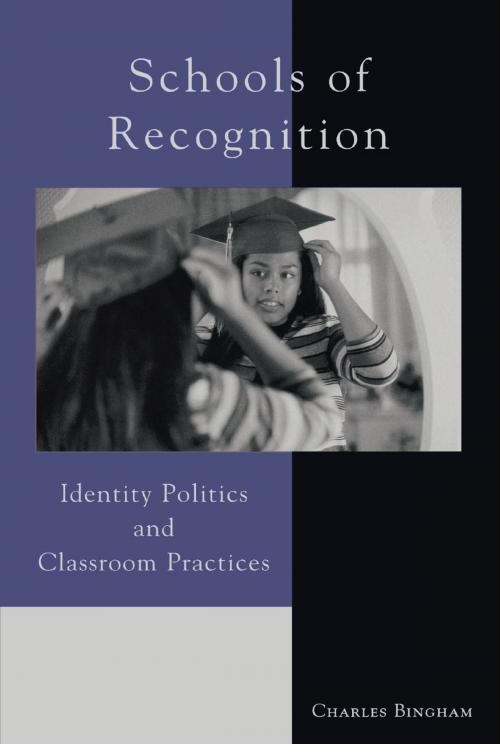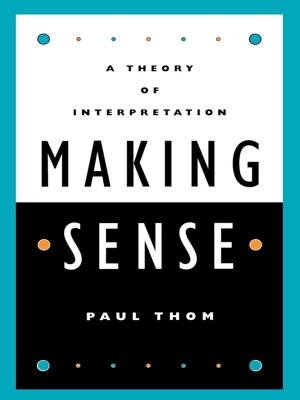Schools of Recognition
Identity Politics and Classroom Practices
Nonfiction, Reference & Language, Education & Teaching, Educational Theory, Multicultural Education| Author: | Charles Bingham | ISBN: | 9781461616610 |
| Publisher: | Rowman & Littlefield Publishers | Publication: | April 11, 2001 |
| Imprint: | Rowman & Littlefield Publishers | Language: | English |
| Author: | Charles Bingham |
| ISBN: | 9781461616610 |
| Publisher: | Rowman & Littlefield Publishers |
| Publication: | April 11, 2001 |
| Imprint: | Rowman & Littlefield Publishers |
| Language: | English |
Schools are places where various cultures and identities must be recognized, yet there has been little research into what it means to recognize another person, identity, or culture. Drawing on the writings of Charles Taylor, Martin Buber, Judith Butler, and Jessica Benjamin, Schools of Recognition provides a rich picture of how recognition is negotiated in education. Using political theory, existentialism, queer theory, and psychoanalysis, Bingham shows that recognition can be fostered not only through the books that students read, but also through the ways that they learn to engage with other human beings. Recognition depends not only on receiving acknowledgement, but also on giving acknowledgement. It depends not only on what we learn from others about ourselves, but also on what we are able to teach others about themselves.
Schools are places where various cultures and identities must be recognized, yet there has been little research into what it means to recognize another person, identity, or culture. Drawing on the writings of Charles Taylor, Martin Buber, Judith Butler, and Jessica Benjamin, Schools of Recognition provides a rich picture of how recognition is negotiated in education. Using political theory, existentialism, queer theory, and psychoanalysis, Bingham shows that recognition can be fostered not only through the books that students read, but also through the ways that they learn to engage with other human beings. Recognition depends not only on receiving acknowledgement, but also on giving acknowledgement. It depends not only on what we learn from others about ourselves, but also on what we are able to teach others about themselves.















